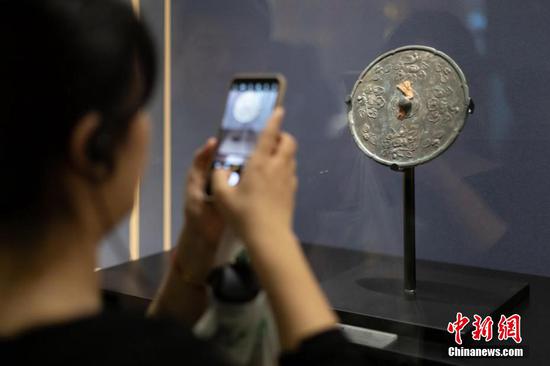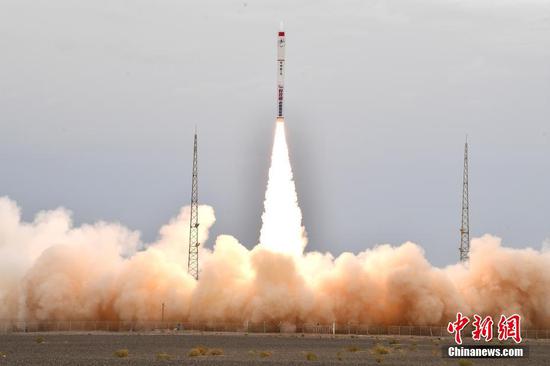(ECNS) -- Both offshore and onshore exchange rates of the Chinese Yuan have seen a decline against the U.S. Dollar. Experts from Hong Kong Special Administrative Region have stated that while there have been some fluctuations in the recent Chinese Yuan exchange rate, it remains a consistently stable currency, providing reliable support for economic development.
Data on Tuesday indicates that the offshore Chinese Yuan dipped below 7.3 yuan against the U.S. Dollar, marking a new low since November last year, while the onshore Chinese Yuan also fell below 7.28 yuan. The exchange rate between the Hong Kong Dollar and the Chinese Yuan stands at 92.9.
Doctor Mak Billy at Hong Kong Baptist University told China News Service that the depreciation of the Chinese Yuan has complex reasons, but he remains confident in the future stability of the currency and development of the Chinese economy.
“Fluctuations in the Chinese Yuan exchange rate can impact trade costs and competitiveness between Hong Kong and the Chinese mainland,” he said.
“When the Chinese Yuan depreciates, export prices of goods from Hong Kong relatively decrease, potentially attracting more international buyers. This could lead to an increase in export volume and market share, benefiting Hong Kong's export sector,” the professor added.
Terence Tai-Leung Chong at the Lau Chor Tak Institute of Global Economics and Finance, the Chinese University of Hong Kong, said exchange rate fluctuations are a normal occurrence.
“A fluctuating price mechanism is essential for resource allocation and automatic adjustment to take place,” he said, adding that these fluctuations are the result of a combination of market supply and demand dynamics and various factors. These fluctuations bring both opportunities and challenges, the economist believes.
Chong mentioned that a relatively weaker Chinese Yuan could result in lower-priced export commodities when priced in US Dollars. Chinese exporters can produce and export goods at lower costs, thereby enhancing their competitiveness in the international market. This can attract more overseas buyers to purchase Chinese export products.
He also noted that when the Chinese Yuan is relatively weaker, Hong Kong residents would be more likely to consume in the Chinese mainland, because they can exchange relatively fewer Hong Kong Dollars for more Chinese Yuan, enabling them to enjoy more cost-effective shopping and tourism experiences.
Analysis from the Research and Development Department of CSC Financial indicated that the overall economic rebound in the latter half of this year, coupled with a trend of overseas economic slowdown, has set a solid foundation for currency appreciation. Looking at the mid-term perspective, the currency trend will depend on the strength of China's economic recovery and development of overseas economies.


















































 京公网安备 11010202009201号
京公网安备 11010202009201号